With a CLAT rank of 5600, it is challenging for an outside-Delhi candidate to secure a seat at VIPS (Vivekananda Institute of Professional Studies) , especially in the General category, since cutoffs for candidates from outside Delhi are generally higher for top law programmes.
CBSE Students 6-10 Times More Likely to Succeed in CLAT, JEE – The Shocking Truth Behind the Success Gap
The CBSE board students have six times better chances of qualifying the Common Law Admission Test (CLAT) than non-CBSE students. A recent Right to Information (RTI) response from the Consortium of National Law Universities (NLUs) revealed shocking data on the success rate of CBSE board students. While the Central Board of Secondary Education (CBSE) has just 18% of Higher Secondary schools in India, over 58% of students qualifying the CLAT examination come from these schools, the RTI data revealed.
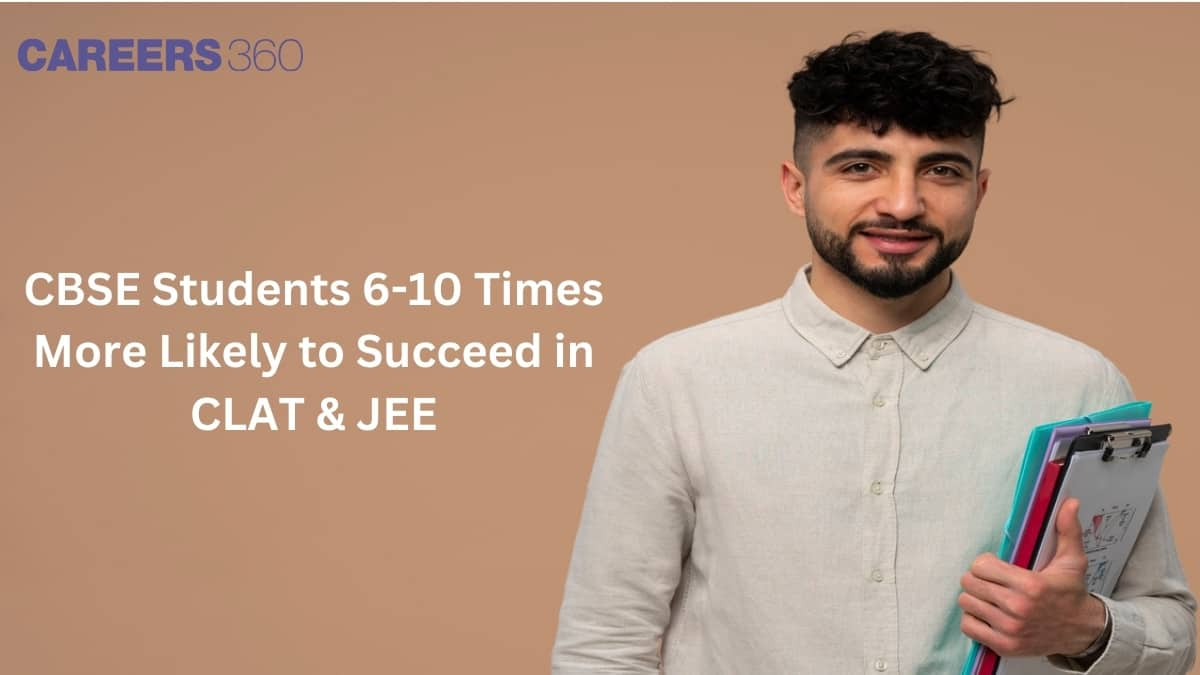
The CLAT 2024 exam held on December 03, 2023, had 53,180 applicants. Of these, 22,217 students qualified for CLAT counselling. As per the RTI response, 12,827 who qualified in the CLAT counselling were from CBSE board schools. The remaining 9,390 students were from other school boards. This shows the huge advantage CBSE board students have over the students studying in the remaining 60+ school education boards in India. This data is an eye-opener for students aspiring to crack competitive national entrance exams.
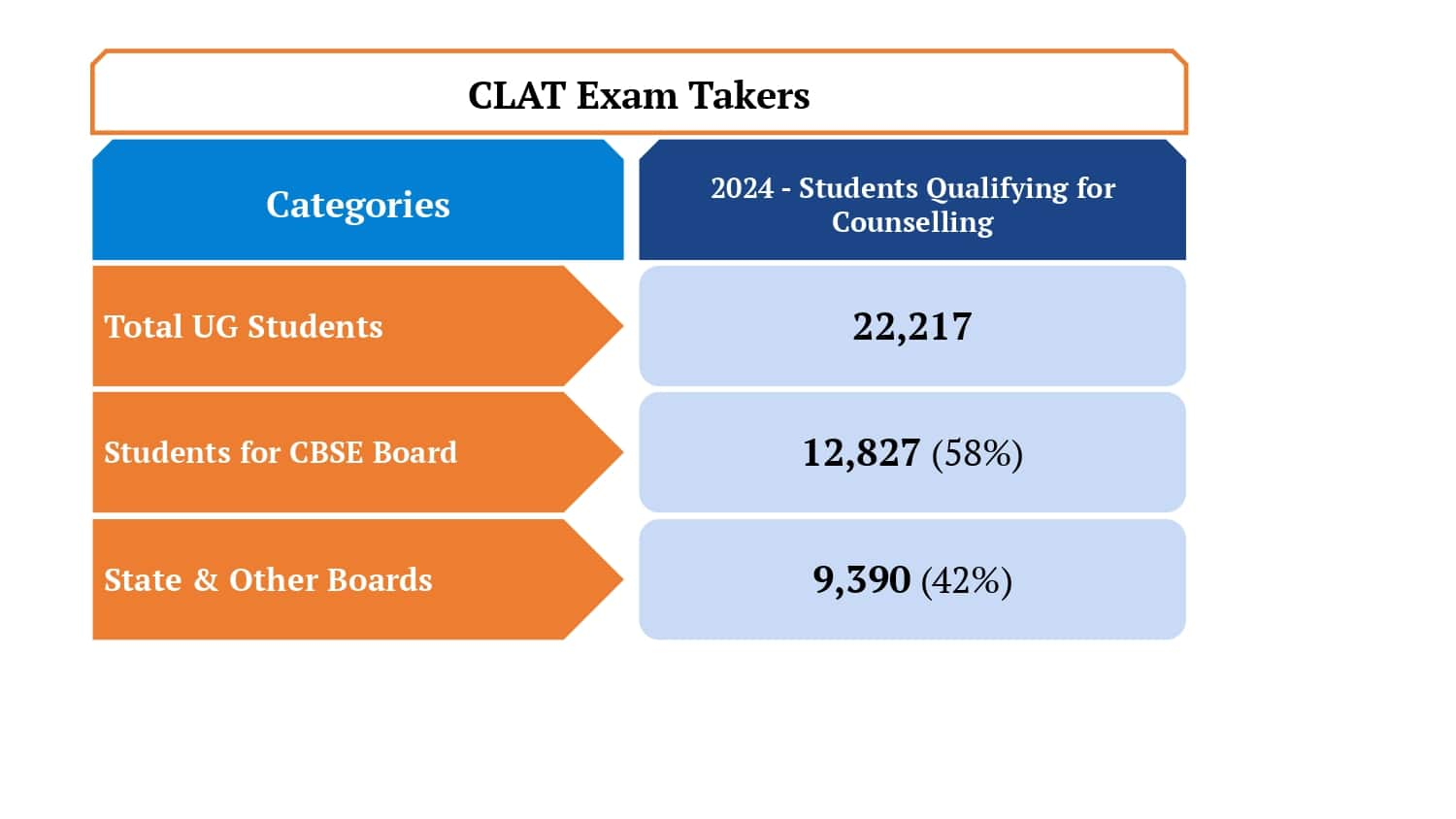
Schools in India
According to the UDSIE report, India currently has 14.71 lakh schools. Of these, 12.22 lakh schools are government-aided and the remaining 3.31 lakh are private.
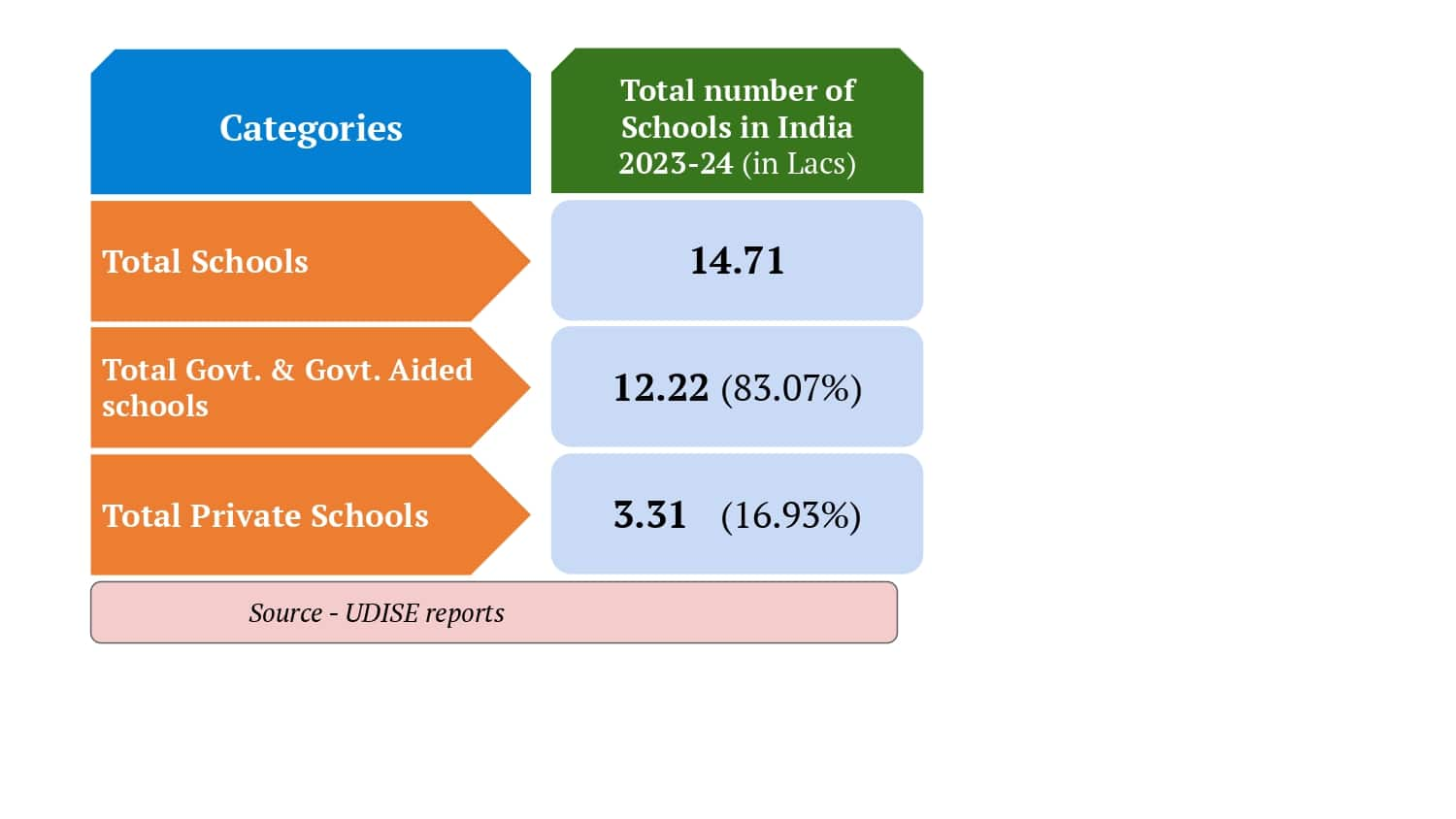
Of all these government and private schools, approximately 1.50 lakh schools offer senior secondary education. A further breakdown of this data and the 2023 CBSE annual report shows, that only 28,135, or 18% of these schools are affiliated to the CBSE. The remaining 81% of schools are affiliated to non-CBSE boards, which include state boards, Indian Certificate of Secondary Education (ICSE), National Institute of Open Schooling (NIOS), International Baccalaureate (IB) boards and others.
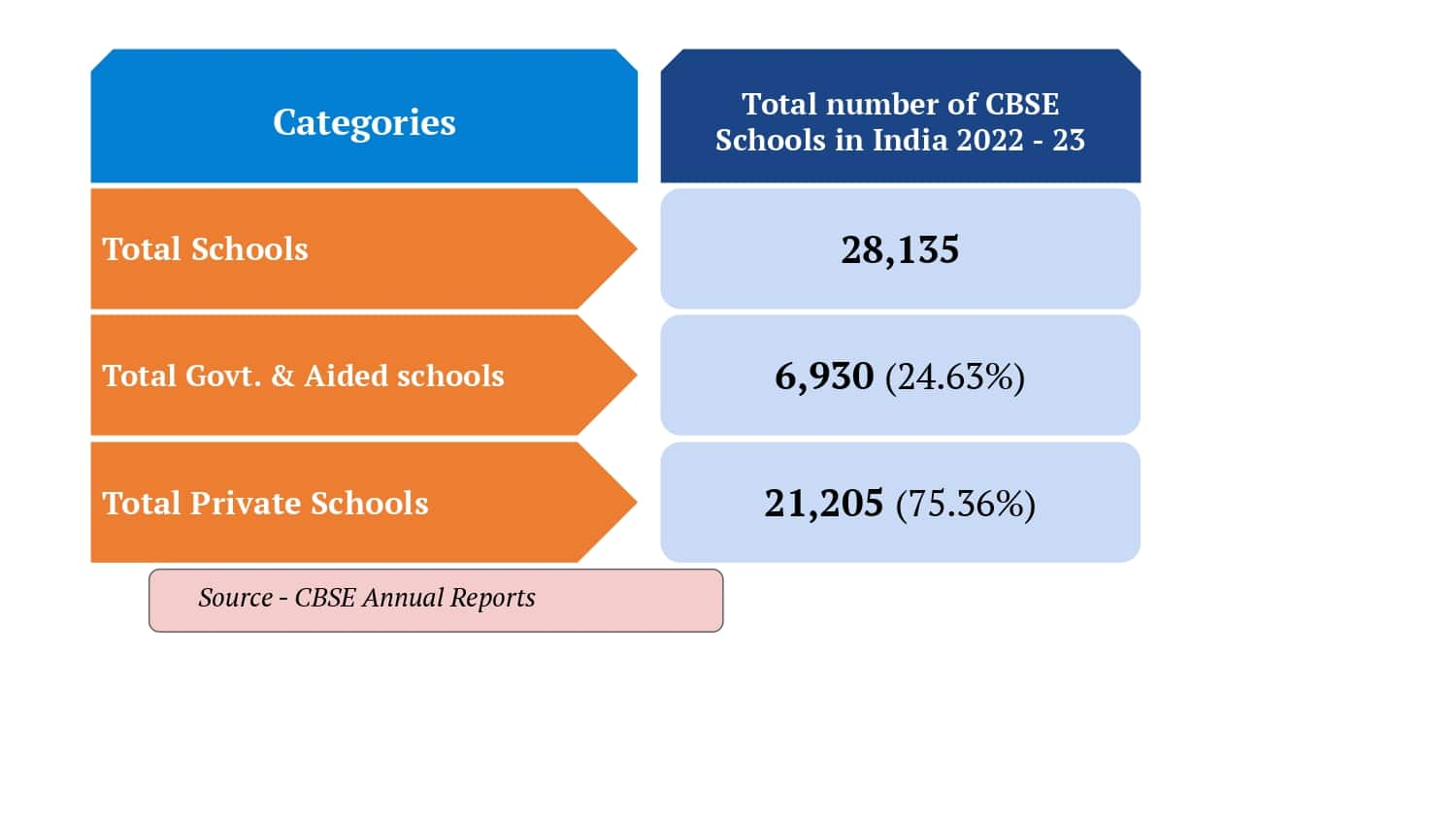
The JEE Case: 2018 Report by IIT Kanpur
In 2018, the Indian Institute of Technology (IIT), Kanpur conducted the Joint Entrance Examination (JEE). The institute later released a detailed report on how students from different school boards performed in the examination. Of the 10.43 Lakh students who appeared in JEE, 1.14 Lakh or 11% were from CBSE board schools, while 9.28 Lakh constituting 89% of the total candidates appeared from other boards.

Of these 1.14 Lakh CBSE students, over 62.24% qualified in the JEE examination. Whereas, only 10% of the candidates from non-CBSE board schools could clear the exam.
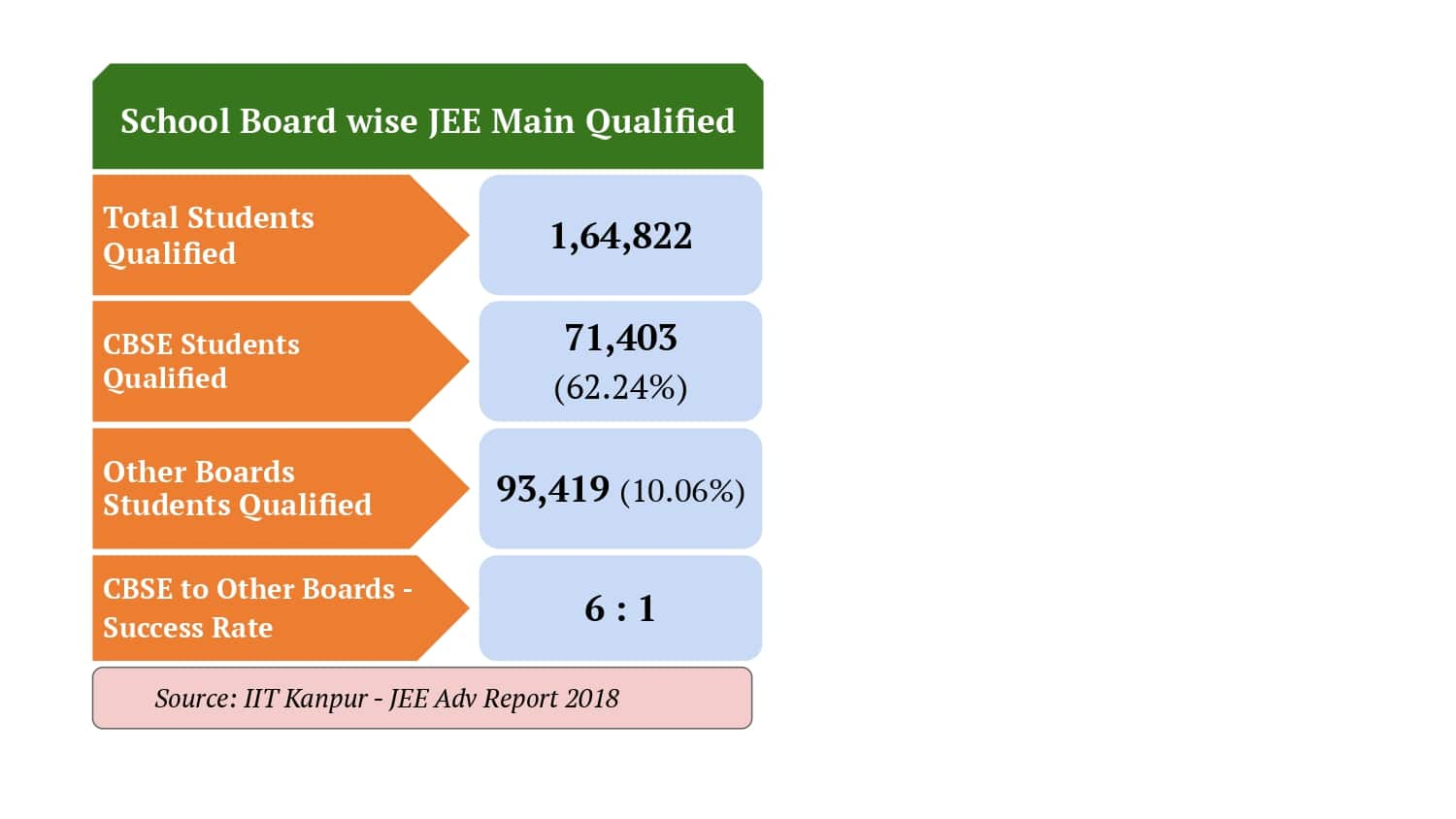
This huge disparity in the success rate of CBSE and non-CBSE school students doesn’t stop here. The report further revealed that 6,600 seats in IITs were eventually acquired by students who studied in CBSE board schools. Whereas, 9.82 Lakh students from all other non-CBSE school boards could claim just 5,371 seats. This effectively meant the chances of a CBSE student succeeding in JEE stood at 10 times higher than any other student in India.
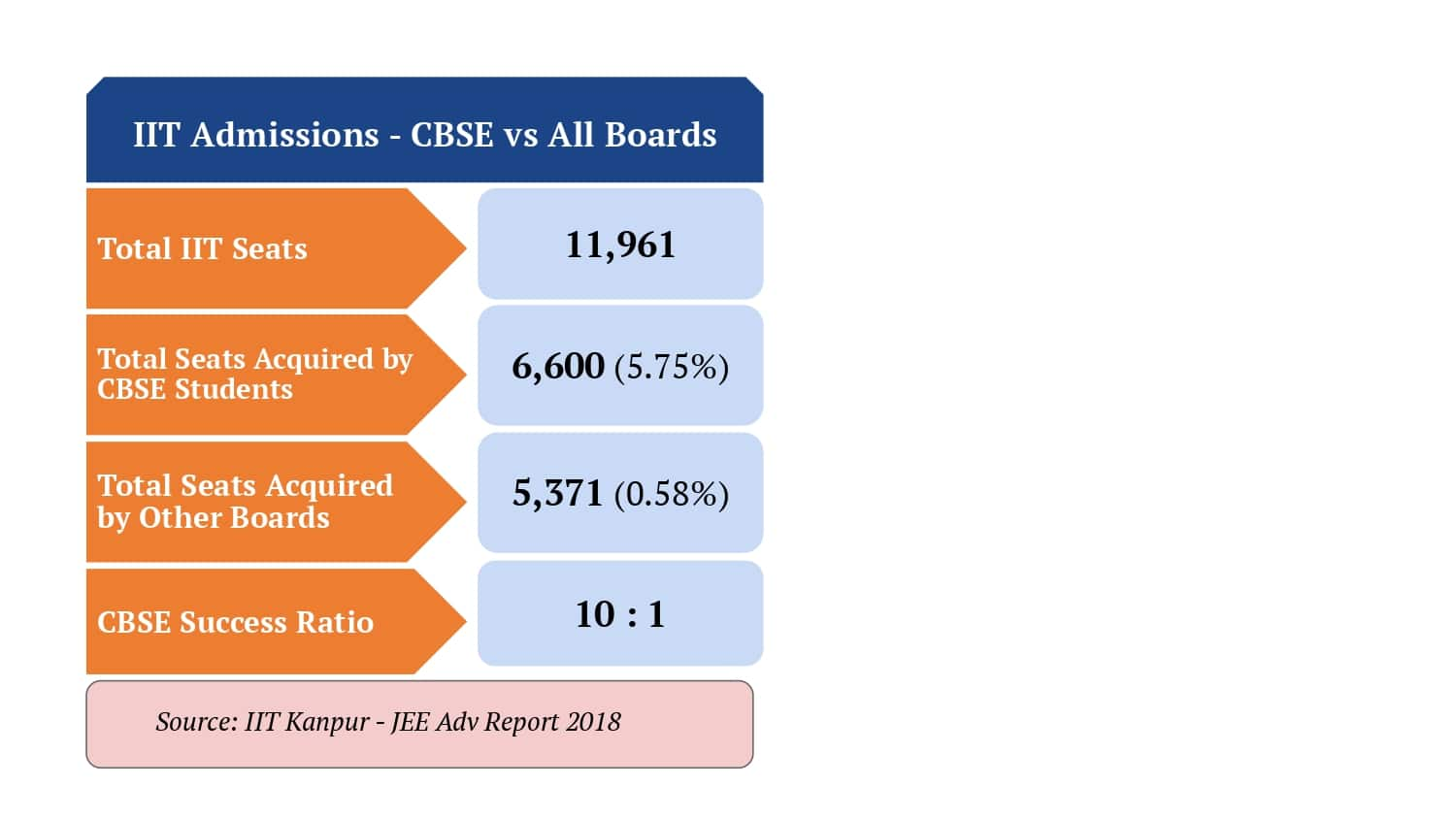
Advantage CBSE: Why a higher success rate for CBSE students?
The CBSE is one of the national boards of school education in India and has a nationwide presence. Most of the schools approved by the central government in India are affiliated to CBSE. These include Kendriya Vidyalayas (KVs), government/aided schools, private schools, Jawahar Novodaya Vidyalayas (JNVs) and Central Tibetan Schools. All schools affiliated to the CBSE follow the curriculum developed by the National Council of Educational Research and Training (NCERT).
Here are four major reasons why students studying in CBSE schools have a huge advantage over others in the competitive exams.
1. Curriculum Alignment with Entrance Exams
CBSE's curriculum is designed with a focus on conceptual clarity and, aligning closely with the syllabi of national-level entrance exams like JEE, CLAT and NEET.
2. Focus on NCERT Textbooks
CBSE extensively uses NCERT textbooks, which are also the primary source for questions in exams like JEE, NEET, and CUET.
3. Assessment Pattern
CBSE assessments emphasise multiple-choice questions, reasoning, and problem-solving skills, which mimic the pattern of competitive exams.
4. Access to Better Resources and Guidance
CBSE students typically have access to better study materials, coaching centres, and guidance specifically targeted at entrance exams. These resources are often tailored to CBSE's curriculum
The Other Side of CBSE Schools: Accessibility and Cost
The latest RTI responses on CLAT accessed by Careers360 along with the 2018 IIT Kanpur report on JEE establish that the CBSE offers a huge advantage to students wanting to crack the competitive exams. These exams are the gateways to top universities in India such as IITs, NITs, NLUs, NIDs and medical colleges.
But how accessible are the CBSE board schools? Of the 14.71 lakh schools in India, only 28,135 schools are CBSE schools. Among the schools offering Senior Secondary education, CBSE schools constitute just around 18%. Compare this with the Uttar Pradesh Madhyamik Shiksha Parishad (UPMSP) which alone has around 25 lakh students appearing in Class 12th in a year. This is much higher than the 16.21 lakh students who appeared in the Class 12the exam from all CBSE board schools in the country.
As per the CBSE annual report, of 28,135 affiliated schools, over 75% of schools are private owned. The cost of education in these private schools in India is much higher than in government schools, making many of them unaffordable for lower and middle-class families.
Need for Reforms in State Board School Curricula
Education is listed as the concurrent subject in the seventh schedule of the Indian Constitution. All states have separate school education boards and they will continue to exist in the spirit of federalism. However, Unlike CBSE board schools, state board syllabi are less uniform and often lack the focus required for national-level competitive exams. The syllabi in many of these boards are designed around theory and rote learning rather than aptitude and problem-solving skills.
The students in the state board schools also face limited access to high-quality study materials and specialised coaching. This resource disparity eventually puts them at a relative disadvantage especially when they have to compete at national-level competitions and leave behind the schooling boards.
A major reform and curriculum overhaul is the need of the hour to keep state board schools relevant and prevent students from migrating to CBSE board schools. At least the subjects that lead students to STEM (science, technology, engineering, and mathematics) courses should be kept uniform across the schools, while the assessment methods need to be changed for improved focus on reasoning, aptitude and problem-solving skills.
For students, if their objective is to crack any of the national-level entrance exams and if the state board schools are not offering the quality required to compete at the national level, it is time to move to the CBSE board schools. The success rate of students from these schools in entrance examinations is six to ten times higher than all other school boards in India.
Popular Courses and Specializations
Popular Degrees
List of colleges accepting CLAT
Browse Law Colleges by State
Questions related to CLAT
On Question asked by student community
Most law colleges require entrance exams like CLAT or state-level law entrance tests. Some private universities may offer direct admission. Visit the official website of the college, fill out the application form, upload required documents, pay the fee, and complete counselling if required.
With a CLAT score of 71.35, you can apply for admission to NLU for mid-to-lower-tier NLU courses, with a state rank of 69.
With a CLAT 2026 rank of 33,825, it's difficult to get a seat at GNLU Silvassa in the initial stages.
You should focus on private institutions, where a CLAT 2026 rank of 33,825 has a higher chance of admission.
For information on domicile quota seats, see this - CLAT Domicile
You can check the admission chances of your daughter at specific law colleges by using the link provided below by entering the required information.
Start a career in Law. Admissions Open for LLB courses for
Among top 100 Universities Globally in the Times Higher Education (THE) Interdisciplinary Science Rankings 2026
Chandigarh University Admissions 2026
ApplyNAAC A+ Accredited | Among top 2% Universities Globally (QS World University Rankings 2026)
Manav Rachna University Law Admissions 2026
ApplyAdmissions open for B.A. LL.B. (Hons.), B.B.A. LL.B. (Hons.) and LL.B Program (3 Years) | School of Law, MRU ranked No. 1 in Law Schools of Excellence in India by GHRDC (2023)
RV University, Bangalore | Law Admissions 2026
ApplyExcellent curriculum; an impressive range of electives, besides core law courses. Up to 100% merit scholarship on a first-come, first-served basis
Unitedworld School of Law Admissions 2026
ApplyMoot Court | Mock trials | Legal Aid Clinic
SRM University, Chennai Law UG 2026
ApplyNAAC A++ Accredited | Ranked #11 by NIRF
